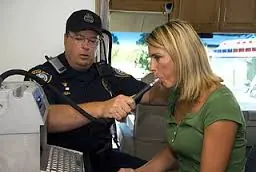If you are arrested and charged with driving under the influence, or DUI, in Nebraska you will likely be asked to submit to a chemical test once you arrive at the station or jail. Typically, you will be asked to perform a breath test using a Datamaster (DCM) or other similar breath test machine. The prosecution will rely heavily on the results of the test assuming you take it and the results show a blood alcohol concentration, or BAC, over the legal limit of 0.08 percent. How accurate is the Datamaster breath test machine though?
Nebraska has an implied consent law that essentially says you give your consent to submit to a chemical test if you are arrested and charged with DUI or another driving under the influence of drugs (DUID). This does not mean, however, that you are required to submit to a chemical test. Instead, it means there are consequences to refusing the test. The purpose of the test is to determine your BAC level. In Nebraska, it is illegal to operate a motor vehicle with a BAC level over 0.08 percent. The accuracy of the machine used to test your BAC level, therefore, is important.
A breath test machine such as the Datamaster doesn’t actually measure the amount of alcohol in your blood. Do to that you must submit to a blood test. Instead, the Datamaster estimates your blood alcohol concentration indirectly through analyzing your breath. Under ideal laboratory conditions a Datamaster machine can produce a fairly accurate result with an error rate of less than five percent. The problem is, however, that the test is never performed under ideal laboratory conditions. There are several critical factors that can dramatically influence the test’s accuracy, including:
- Test operator – for the Datamaster to produce even remotely accurate results the test operator must be properly trained to administer the test and the proper procedures for administering the test must be followed. The time frame within which the test must be given, the observation period prior to the test, and other procedural safeguards must be followed for the results to be accurate. All too often an operator lacks the proper training or these safeguards are ignored, calling into question the accuracy of the results.
- Machine calibration – a breath test machine must be calibrated on a regular basis to operate properly. Failing to do so can affect the accuracy of the results.
- Capturing other substances – over 100 compounds can exist in human breath at any time with as many as 80 percent of those containing methyl group structure that can be mistaken for ethyl alcohol. In addition, diabetics and dieters can have acetone levels hundreds and even thousands of times higher than that in others according to the National Highway Transportation Safety Administration, or NHTSA.
The bottom line is that the Datamaster test may not be as accurate the prosecutor would like a jury to believe. If you have specific questions about the Datamaster accuracy in your DUI case, contact the Omaha, Nebraska law office of Petersen Law Office 24 hours a day at 402-513-2180.


